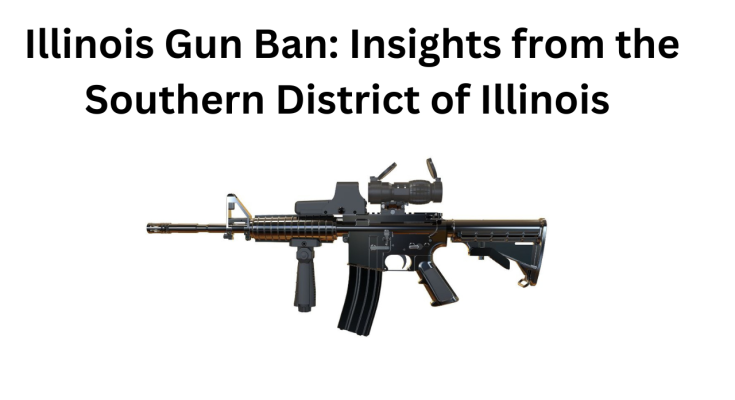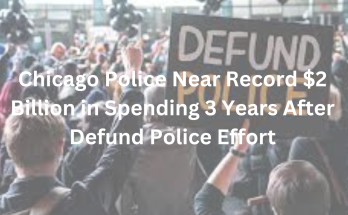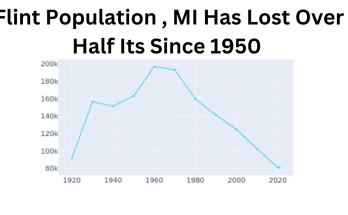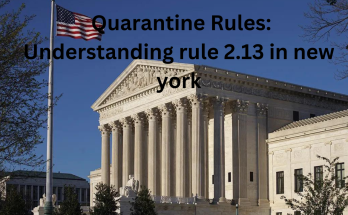Introduction Insights from the Southern District of Illinois:
In a significant legal development, a judge in the Southern District of Illinois has expressed a lack of interest in delaying a challenge to Illinois’ gun ban, signaling a potential shift in the legal landscape surrounding gun rights and regulations. This decision has implications for gun owners, advocates, and policymakers alike, as debates over Second Amendment rights continue to shape legal discourse across the United States. In this article, we’ll delve into the specifics of the case, explore the implications of the judge’s stance, and provide insights into the broader context of gun regulation in Illinois and beyond.
Understanding the Case:
The challenge to Illinois’ gun ban in Southern District of Illinois state’s firearms regulations, which impose restrictions on the possession, sale, and use of firearms. The plaintiffs in the case argue that these regulations violate their Second Amendment rights to keep and bear arms, challenging the constitutionality of Illinois’ gun laws.
The judge presiding over the case in the Southern District of Illinois has made it clear that they are ‘not interested’ in delaying proceedings, signaling a swift and decisive approach to adjudicating the legal challenge. This stance suggests that the court is prepared to address the merits of the case without unnecessary delays or procedural obstacles.
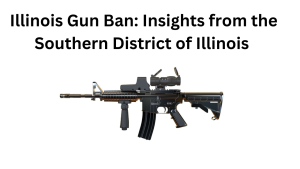
Read More Article : Judge ‘not interested’ in delaying challenge to Illinois gun ban Southern District of Illinois
Implications for Gun Rights and Regulations:
The judge’s refusal to delay the challenge to Illinois’ gun ban has significant implications for gun rights and regulations in the state and beyond:
- Second Amendment Protections: The decision underscores the importance of Second Amendment protections in the legal system, affirming the rights of individuals to possess and bear arms. By advancing the legal challenge without delay, the court reaffirms its commitment to upholding constitutional rights in the face of government regulations.
- Legal Precedent: The outcome of the case in the Southern District of Illinois could set a legal precedent for future challenges to gun regulations in other jurisdictions. Depending on the court’s ruling, the case may influence the interpretation and application of Second Amendment rights in similar legal contexts.
- Political and Policy Implications: The judge’s stance on the challenge to Illinois’ gun ban may have broader political and policy implications, shaping debates over gun control and regulation at the state and national levels. The outcome of the case could influence legislative efforts to enact or amend firearms laws, as well as public perceptions of gun rights and responsibilities.
Broader Context of Gun Regulation in Illinois:
Illinois has a complex and often contentious history of gun regulation, shaped by factors such as urban violence, crime rates, and public safety concerns. The state’s firearms laws have evolved over time in response to changing societal dynamics and legal challenges, reflecting a delicate balance between individual rights and public safety interests.
Efforts to regulate firearms in Illinois have faced legal scrutiny and political opposition, with debates often centering on issues such as background checks, concealed carry permits, and restrictions on certain types of firearms. The challenge to Illinois’ gun ban is just one example of the ongoing tensions surrounding gun rights and regulations in the state.
Conclusion:
The judge’s decision not to delay the challenge to Illinois’ gun ban in the Southern District of Illinois signals a significant development in the legal landscape surrounding gun rights and regulations. As the case proceeds, it will be closely watched by gun owners, advocates, policymakers, and legal scholars alike, with potential implications for Second Amendment jurisprudence and public policy debates. Regardless of the outcome, the case underscores the importance of robust legal mechanisms for safeguarding constitutional rights and ensuring accountability in the realm of gun regulation.
Read More Interesting Article : Flint Population , MI Has Lost Over Half Its Since 1950

